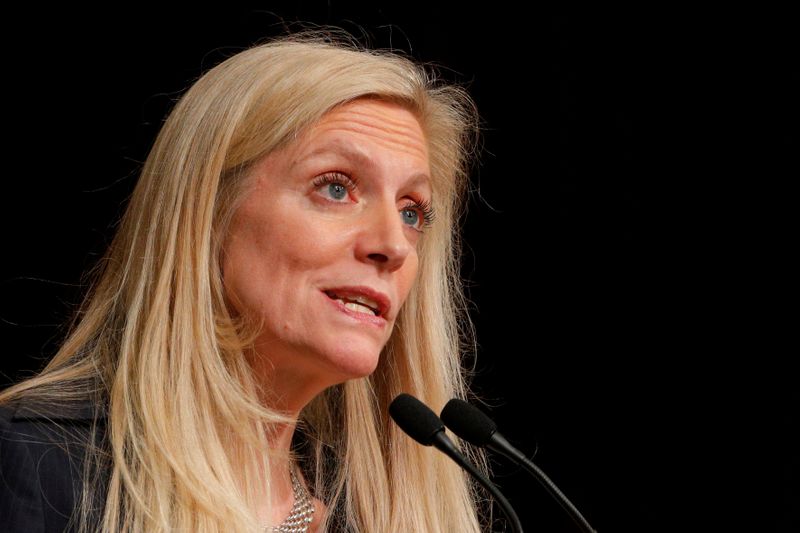By Jonnelle Marte
(Reuters) - The U.S. economy remains far from the Federal Reserve's goals for employment and inflation and monetary policy will continue to provide support until further progress has been made in boosting inflation and improving the labor market for all workers, Fed Governor Lael Brainard said on Wednesday.
"Today the economy remains far from our goals in terms of both employment and inflation, and it will take some time to achieve substantial further progress," she said during a virtual guest lecture at Harvard University.
In a comprehensive speech that laid out the history of the Fed's dual mandate and how the central bank's assessment of those goals has evolved, Brainard said policymakers are looking beyond the headline unemployment rate when assessing the health of the labor market, which is recovering unevenly from the pandemic.
Under a new framework announced last August, Fed officials will no longer raise interest rates when the unemployment rate is low in anticipation of higher inflation, allowing more time for the labor market to heal.
Brainard recalled hearing from community leaders across the country during the central bank's Fed Listens events prior to the pandemic who saw double-digit unemployment rates in their localities even while the national unemployment rate was at a multi-decade low. "Community and labor representatives and educators noted 'it’s always a recession' in their communities," Brainard said.
The Fed official said the bank's previous approach may have hurt some workers by cutting off growth before they could feel the benefits of the strong economy.

Policymakers will look at wages, the employment-to- population ratio and the labor force participation rate, among other indicators, when assessing the labor market, Brainard said. Fed officials will also plan to keep support in place until average inflation is above 2% and on track to moderately exceed 2% for "some time," she said.